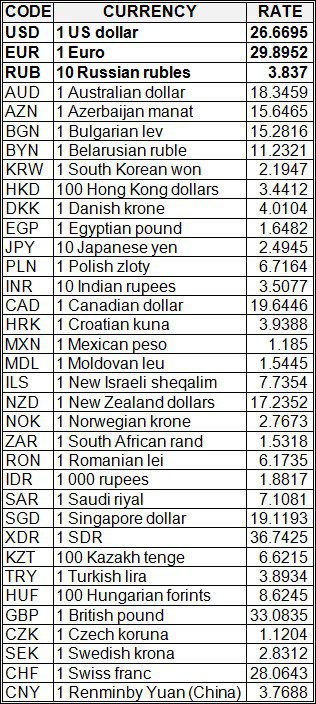
Ukrainian President Volodymyr Zelensky by his decree ordered to create the coordination council to implement the Big Construction project led by Deputy Head of the President’s Office Kyrylo Tymoshenko.
“To establish a coordination council for the implementation of the Big Construction program as an advisory body under the President of Ukraine, which main task is to monitor the situation and develop proposals for implementing effective measures to implement the Big Construction program,” Zelensky said in decree No. 246/2020 dated June 23, posted on the president’s website.
By the same decree, Zelensky decided to establish that this coordination council is authorized to receive the necessary information, documents and materials from the government and local governments, enterprises, institutions, organizations; invite to meetings and hear information from representatives of ministries, other central and local executive authorities, heads of state-owned enterprises, institutions and organizations on issues within its competence.
Zelensky by this decree approved the staff of the council.
So, Tymoshenko was appointed the head, and the council also includes Minister of Infrastructure of Ukraine Vladyslav Krykliy, Minister of Health Maksym Stepanov, Minister of Development of Communities and Territories Oleksiy Chernyshov, Head of the State Automobile Roads Agency Oleksandr Kubrakov, First Deputy head of the President’s Office Serhiy Trofimov, and Deputy Head of the President’s Office Yulia Sokolovska.
The coordination council also includes Director General of the Directorate for Regional Policy and Decentralization of the Government of Ukraine Olha Buhai, Director of the Department for Infrastructure and Technical Regulation of the Secretariat of the Cabinet of Ministers Natalia Kozlovska (by her consent), Advisor to the head of the Government of Ukraine Mykhailo Podoliak and Advisor to the Minister of the Cabinet of Ministers Olena Symonenko (by consent).
This decree comes into force on the day of its publication.

President of Ukraine Volodymyr Zelensky has signed the law “On Amendments to the Forest Code of Ukraine regarding the National Forest Inventory” No. 643-IX, which the Verkhovna Rada adopted on June 2, 2020.
“The law provides for the creation in Ukraine of a new system of collecting reasonable data on the forest fund for the purpose of further planning, forestry, the state forest cadastre, forest monitoring and the like,” the head of state’s website reported on Tuesday.
The document introduces the concept of a national forest inventory, defines its purpose and sources of financing.
The procedure for conducting a national forest inventory is approved by the Cabinet of Ministers of Ukraine, it will be carried out at the expense of the state budget or other sources not prohibited by law.
According to the law, persons authorized to conduct a national forest inventory during examinations have the right to be on land plots of the forest fund of Ukraine, except as otherwise provided by law.
Information obtained from the results of the national forest inventory is entered into the state land cadastre.
The law comes into force on the day after its publication.
National bank of Ukraine’s official rates as of 23/06/20

Source: National Bank of Ukraine

The volume of natural gas stored by foreign companies in Ukrainian underground gas storage facilities (UGS) in the “customs warehouse” mode as of mid-June is 2.8 billion cubic meters (bcm), which is three times more than the same figure of the previous year, the press service of Ukrtransgaz said on Facebook.
Some 54 companies are currently using Ukrainian capacities, while a year earlier their number was seven.
Earlier, the company informed that as of June 1, non-residents stored 2 billion cubic meters in the “customs warehouse” mode, which is four times more than in the same period in 2019.
As reported, according to the estimates of head of Gas Transmission System Operator of Ukraine (GTSOU) Serhiy Makogon, the capacity of Ukrainian underground storage facilities that may be available to European companies at the end of the third quarter of this year will amount to about 10 billion cubic meters

The Black Sea Trade and Development Bank will finance four projects of Ukrainian companies: Ukrgasbank, Galnaftogaz, Metinvest and the construction of a school in Kyiv.
According to the Ministry of Economy, the bank approved the relevant projects on June 17 on the eve of the 22nd annual meeting of the board of governors, chaired by the Deputy Minister of Economic Development, Trade and Agriculture of Ukraine, Trade Representative of Ukraine Taras Kachka.
“Given the difficult period in the global economy caused by the crisis, the stable functioning of the Black Sea Trade and Development Bank and access to its finances are especially important. We welcome the fact that, despite the crisis, the bank continues to cooperate with projects with a high potential in public and private sectors, and support the economic development of member states,” Kachka said.
как Additional information on these projects is not yet available.Since the bank began operating in Ukraine, 47 projects have been implemented for a total of EUR738.9 million. In particular, projects are concentrated in such areas as the consumer sector, financial institutions, industry, consumer goods, utilities, telecommunications, energy, raw materials and materials.
The Black Sea Trade and Development Bank is an international organization uniting 11 states of the Organization of the Black Sea Economic Cooperation. The bank aims to promote economic cooperation, trade and cooperation of the countries of the Black Sea region.